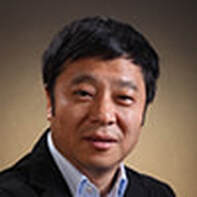|
Date: 11 Jan 2021 (Tuesday)
Time: 10am - 11am Format: Zoom Webinar (registration is required) Hosted by: Adrian TEO, IMCB & ExCo SCSS |
ABSTRACT
The development of organoids, which mimic physiological 3D tissue organization and functionality through the self-organization of stem cells, has shown great applicative potential in studying development and diseases. One major limitation of current organoid technology is that it only reflects the self-organization of homeostatic stem cells and their derivatives, but not regenerative tissues upon injury. We recently developed a novel intestinal organoid culture system, designated hyperplastic intestinal organoids (Hyper-organoids), which has key features of injury-associated intestinal epithelial regeneration. Single-cell RNA sequencing identified different regenerative stem cell populations in our Hyper-organoids that shared molecular features with in vivo injury-responsive stem cells. Using this system, we found that two small molecules were critical for epigenome reprogramming and regeneration, which functioned through epigenetically regulating YAP signaling. Our studies demonstrated a new in vitro organoid model to study epithelial regeneration, and highlight the importance of epigenetic reprogramming that pioneers tissue repair.
BIO
Hongkui Deng is a Boya Chair Professor and Senior Investigators of Center for Life Sciences at Peking University. He is also Department Chair of Cell Biology at School of Basic Medical Sciences of Peking University Health Science Center. Since 2013, he has been the director of the Peking University Stem Cell Research Center. Professor Deng’s research focuses on somatic cell reprogramming and lineage specific differentiation of human pluripotent stem cells. In 2013, his lab developed a chemical reprogramming strategy to induce pluripotent stem cells from somatic cell types using only small molecules. This breakthrough has opened new avenues for manipulating cellular states or identities via chemical reprogramming, and his lab has recently applied this chemical approach in promoting tissue regeneration in vivo. He also serves on a number of editorial boards including Cell, Cell Stem Cell, Stem Cell Reports, and Cell Research. Professor Deng was elected to the ISSCR Board of Directors in 2010 and re-appointed for a second term in 2013. He also become the ISRB Board of Directors in 2021.
The development of organoids, which mimic physiological 3D tissue organization and functionality through the self-organization of stem cells, has shown great applicative potential in studying development and diseases. One major limitation of current organoid technology is that it only reflects the self-organization of homeostatic stem cells and their derivatives, but not regenerative tissues upon injury. We recently developed a novel intestinal organoid culture system, designated hyperplastic intestinal organoids (Hyper-organoids), which has key features of injury-associated intestinal epithelial regeneration. Single-cell RNA sequencing identified different regenerative stem cell populations in our Hyper-organoids that shared molecular features with in vivo injury-responsive stem cells. Using this system, we found that two small molecules were critical for epigenome reprogramming and regeneration, which functioned through epigenetically regulating YAP signaling. Our studies demonstrated a new in vitro organoid model to study epithelial regeneration, and highlight the importance of epigenetic reprogramming that pioneers tissue repair.
BIO
Hongkui Deng is a Boya Chair Professor and Senior Investigators of Center for Life Sciences at Peking University. He is also Department Chair of Cell Biology at School of Basic Medical Sciences of Peking University Health Science Center. Since 2013, he has been the director of the Peking University Stem Cell Research Center. Professor Deng’s research focuses on somatic cell reprogramming and lineage specific differentiation of human pluripotent stem cells. In 2013, his lab developed a chemical reprogramming strategy to induce pluripotent stem cells from somatic cell types using only small molecules. This breakthrough has opened new avenues for manipulating cellular states or identities via chemical reprogramming, and his lab has recently applied this chemical approach in promoting tissue regeneration in vivo. He also serves on a number of editorial boards including Cell, Cell Stem Cell, Stem Cell Reports, and Cell Research. Professor Deng was elected to the ISSCR Board of Directors in 2010 and re-appointed for a second term in 2013. He also become the ISRB Board of Directors in 2021.

